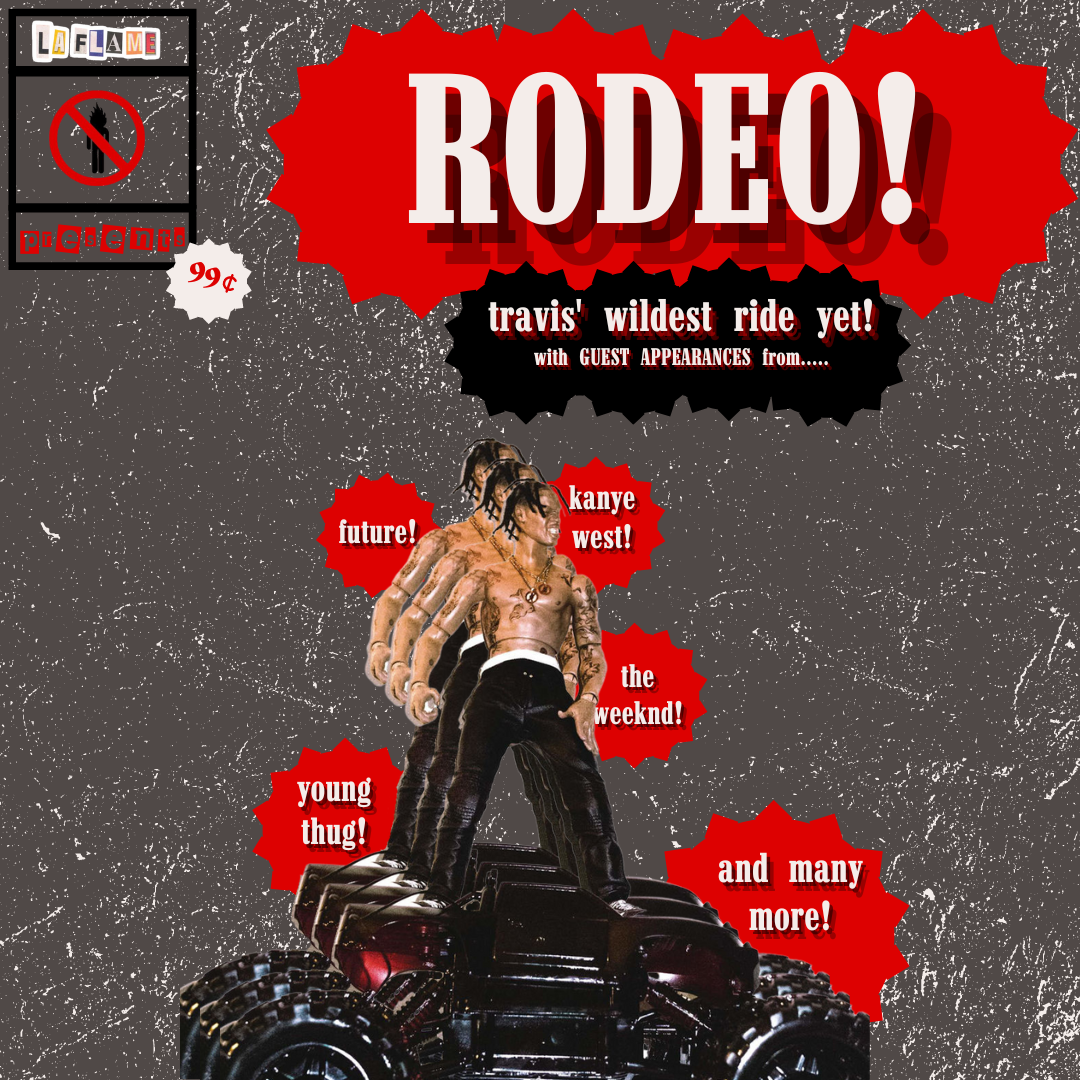As we know it in 2022 Travis has a signature hum on tracks that is almost more recognizable than the one he modeled his after. Back in 2015 was the first time we had heard someone successfully execute such harmonies since Cudi, and he was using a heavy auto tune. Fast Forward to modern day and the majority of young rappers rely on some sort of autotune to achieve a melodic feel to their tracks.
This is the norm. Going back and listening to Rodeo it is interesting how at that time they said Travis was relying more on his autotune than his rapping. In reality these are some of the most innovative and impressive flows and bars in his catalog. On an album filled with features there are no songs when it feels like he is the weak link, and on several occasions he has the superior performance to some household names. This versatility is what allows him to trade verses with The Weeknd on the criminally underrated “Pray 4 Love.”
Rodeo is representative of the peak of what Trap music has been. For years the likes of Future, Gucci Mane, Young Thug and others released projects that told stories of the streets of the South over aggressive base finding flow pockets that most rappers could only dream of, and then even still could never execute. This music dominated their region and every strip club, and is the reason Future claims he is bigger than Jay-Z in the streets. The problem is that that sound had not translated to major critical acclaim or chart topping success.
Days Before Rodeo is where Travis first really showed his ties to the Atlanta Trap scene with features from Young Thug, Rich Homie Quan, and Migos. The only difference is this time he brought Justin Beiber to the trenches. On top of continuing with many of those same features on his debut, he also had ATL legend T.I. narrating the project.
What Travis Scott did with Rodeo was take the essence of the more traditional trap sound and couple that with more cinematic elements from Mike Dean and Kanye. The music then elevated to superstar levels when his performances of this era became the stuff of legend. While all Trap in 2022 doesn’t sound like Travis Scott, he showed both artists and listeners all that it could be with unlimited resources. What he did to legitimize the subgenre to critics and the causal consumer can not be overlooked.















































